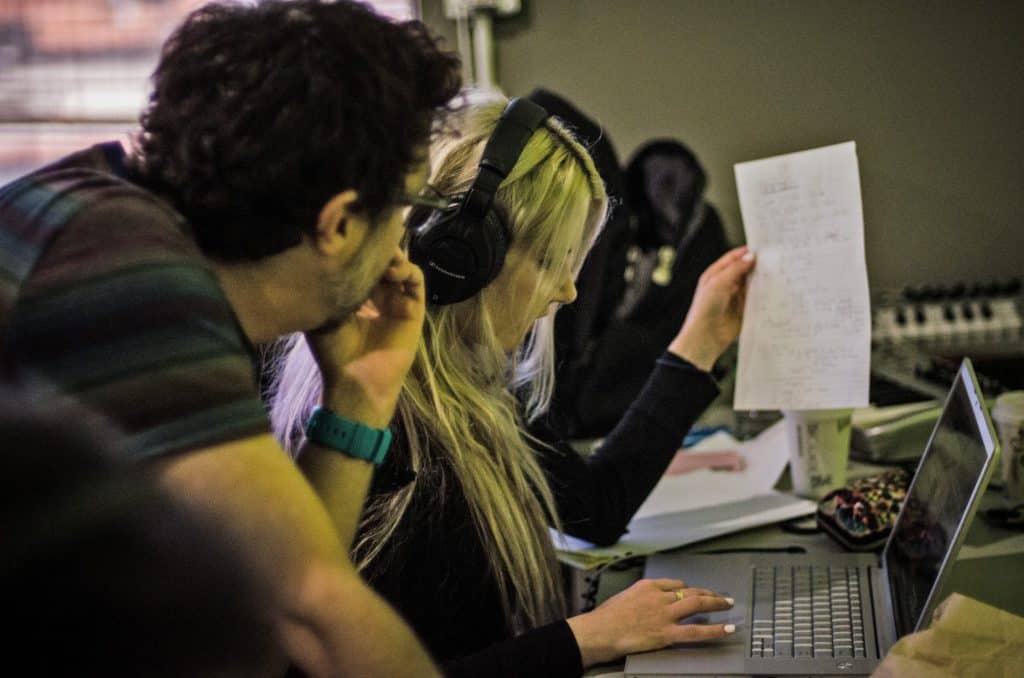Arranging In Logic | DJ L-Roche’s Logic Blog # 4
Arranging In Logic | DJ L-Roche’s Logic Blog # 4
So this week we have a new tutor as all courses at GSS have more than one tutor. Today and for the rest of the course it’s Tom, and he will teach us arranging in Logic, Advanced Midi and Advanced Audio. He’s been working in music studios for 12 years as an engineer, he has worked with all different music genres and different forms of sound engineering; band recording, orchestral, video game soundtracks, singer/songwriters etc (very impressive). He’s really friendly and wants to know what we all do and are into too. Really great atmosphere in the studio again; its such a miserable rainy day outside and we’re in our cosy music hub.
Tom shows us tools we can use to arrange in Logic, he also shows us how ‘the environment’ part of Logic works, this is basically controlling the different steps of what’s going on in the main screen. Apparently its not used as much as it used to be but there’s lots you can do to process midi data and patterns. Basically everything in ‘the environment’ section is what goes on behind Logic. Everything Tom explains to us we then have a go at ourselves, aiming to lodge the different processes in our brains! The environment is filled with different ‘objects’, which are there for you to edit; e.g. an Arpeggiator will split up notes you have playing at the same time in whichever tempo you choose, a Chord Memoriser will remember a chord you assign to play on a certain key.
We then move onto key commands and shortcuts because these are so vital when using Logic, its also different to using shortcuts in other softwares because you can set your own. Tom emphasises the importance of these, explains how much it will speed up any project you’re working on; “one thing that slows people down is that they cant make their way around logic”. He says professional sound engineers will hardly use the mouse and this is slower, you have to essentially touch type in key commands, different combinations of keys will mean completely different actions.
In advanced audio we learn how to time stretch a sound effectively; when slowing down a record the pitch will change and the track will take longer to finish, time stretching is the ability to change tempo and pitch independently from one another, i.e. can make a sound play faster or slower with no change to the pitch. This concept isn’t new at all, but we have to learn to do it manually in logic.
So this weeks session was lots of technical pointers to help our work, these are advanced methods in logic so it was difficult to understand but definitely such an advantage that we had Tom explaining and demonstrating. We’re learning that it’s really all about attention to detail.
Find out more about DJ L-Roche by following her on Twitter and checking out her Soundcloud
For free tips, tricks and tutorials arranging in Logic and lots more, subscribe to our Youtube channel. For samples and other free give-aways, like us on Facebook and follow us on Twitter!

